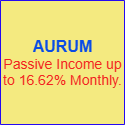Leased Ad Space
10 Game-Changing Tips to Build an Authority Website
Published by Tom Lindstrom — 02-17-2025 05:02:54 AM
Building an authority website is one of the best ways to establish credibility, attract a loyal audience, and generate long-term revenue. Whether you're an aspiring blogger, entrepreneur, or business owner, creating an authority website can help you stand out in your niche and build a sustainable online presence.
This guide will walk you through the top 10 tips for building an authority website, covering everything from niche selection to monetization strategies.
For more expert insights and home business opportunities, visit HomeBusinessIdeas101.com.
Table of Contents
Choose the Right Niche and Audience
Create High-Quality, Evergreen Content
Master SEO for Long-Term Traffic
Build a Strong Brand Identity
Leverage Social Proof and Engagement
Monetize Your Authority Website Strategically
Implement a Content Marketing Strategy
Build Backlinks and Improve Domain Authority
Use Email Marketing for Audience Retention
Track Performance and Optimize Regularly
1. Choose the Right Niche and Audience
To build an authority website, you must start with a profitable and sustainable niche. Your chosen niche should be:
Something you're passionate about or knowledgeable in
Profitable with monetization opportunities
Broad enough for growth but specific enough to establish authority
Real-World Example: Websites like NerdWallet dominate the personal finance niche because they provide valuable, research-driven content that meets their audience’s needs.
Pro Tip: Use tools like Google Trends, Ahrefs, or Ubersuggest to research niche potential.
2. Create High-Quality, Evergreen Content
Authority websites thrive on valuable, in-depth content that remains relevant over time. Prioritize evergreen content, such as:
Ultimate guides
How-to articles
Case studies
Resource lists
Example: A travel website with an article on "Best Travel Apps for 2025" will need constant updates, while "How to Travel on a Budget" remains useful indefinitely.
3. Master SEO for Long-Term Traffic
Search Engine Optimization (SEO) is crucial for organic growth. Focus on:
Keyword research (use tools like SEMrush and Ahrefs)
On-page SEO (title tags, meta descriptions, image alt text)
Internal linking to improve site structure
Site speed optimization
Pro Tip: Long-tail keywords often have less competition and convert better!
4. Build a Strong Brand Identity
Your authority website should have a memorable brand identity, including:
A unique logo and color scheme
A professional, easy-to-navigate website
A compelling "About" page
Real-World Example: Websites like Healthline and WebMD have a strong brand presence that makes them recognizable and trustworthy.
5. Leverage Social Proof and Engagement
Social proof builds credibility. Implement:
Testimonials and case studies
Guest posts and influencer collaborations
User-generated content
Example: A fitness website featuring client success stories instantly increases credibility and engagement.
6. Monetize Your Authority Website Strategically
Popular monetization methods include:
Sponsored content
Memberships and digital products
Display ads
Pro Tip: Diversify your income streams to avoid reliance on a single method.
7. Implement a Content Marketing Strategy
Authority websites publish consistently and distribute content effectively using:
Example: HubSpot’s blog consistently ranks for high-traffic industry keywords because of its comprehensive content strategy.
8. Build Backlinks and Improve Domain Authority
Backlinks signal trust to search engines. Best ways to get backlinks:
Guest posting
Outreach campaigns
Creating shareable, link-worthy content
Real-World Example: Authority sites like Forbes often rank high because they have thousands of high-quality backlinks.
9. Use Email Marketing for Audience Retention
An engaged email list is crucial for long-term success. Tips:
Offer a valuable lead magnet (e.g., free eBook, checklist)
Personalize emails and provide exclusive content
Automate email sequences
Pro Tip: ConvertKit and AWeber are great platforms for beginners.
10. Track Performance and Optimize Regularly
Continuous optimization is key. Use tools like:
Google Analytics (track visitors, bounce rates, conversions)
Google Search Console (monitor search performance)
Ahrefs or SEMrush (track keyword rankings)
Real-World Example: Updating old blog posts with fresh content and SEO improvements can double organic traffic.
Pros and Cons of Building an Authority Website
Pros:
✔️ Long-term passive income potential✔️ Increases credibility and expertise✔️ Sustainable organic traffic✔️ Multiple monetization options✔️ Builds a loyal audience
Cons:
❌ Takes time and effort to establish❌ Requires continuous content updates❌ SEO competition can be challenging❌ Initial investment in website and tools may be needed
Additional Resources
For more insights on home business strategies, visit HomeBusinessIdeas101.com.
For an in-depth SEO guide, check out Moz’s Beginner’s Guide to SEO at Moz.com.
Conclusion
Building an authority website is a long-term investment that pays off when done right. By focusing on niche selection, quality content, SEO, branding, and monetization, you can establish a trusted online presence that generates sustainable income.
Stay consistent, track your progress, and keep refining your strategy to achieve long-term success!
About Tom Lindstrom
Hey there! I'm Tom, and I've been working online for quite some time now. If you're searching for a great place to advertise your business, I highly recommend LeasedAdSpace—it's been an amazing resource for me. If you’d like to explore a simple, proven way to earn automatic affiliate commissions, take a look at HomeBusinessIdeas101.com—you might find it really valuable!




